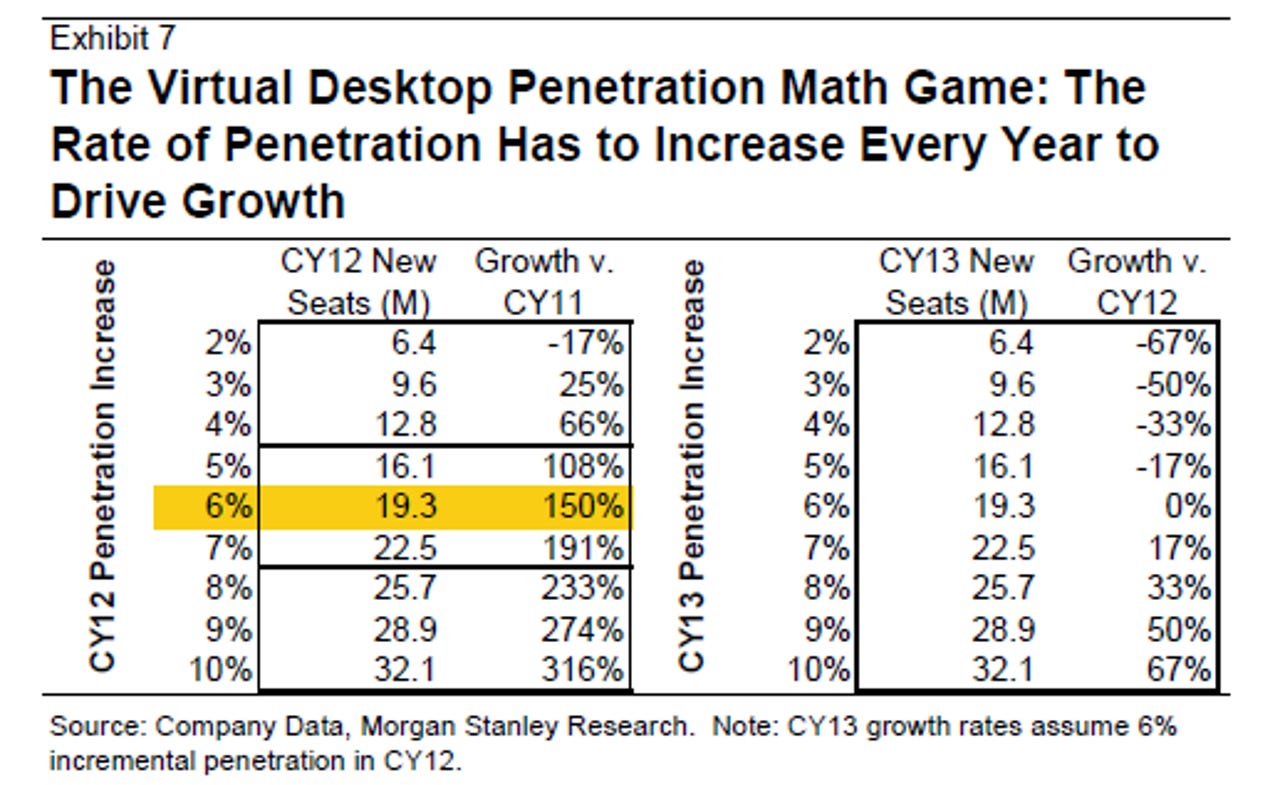Citrix: Losing Windows 7 corporate upgrade tailwind?

Citrix has been riding a Windows 7 corporate upgrade cycle in recent years, but as 70 percent of enterprises have upgraded the desktop virtualization player is likely to see growth headwinds ahead.
Morgan Stanley analyst Adam Holt downgraded Citrix on Monday based on the argument that the company will face tougher growth comparisons in 2013. In a nutshell, Holt expects organic license and billings growth to slow in 2013. The biggest culprit is a Windows 7 upgrade cycle that has largely played out. Holt said:
Windows 7 Has Peaked, PCs Slowing. Greater than 50% of enterprise PCs have moved to Win 7 and we will exit CY12 w/close to 70% migrated. While the migration will continue in CY13, the Win 7 tailwind will slow next year as will corporate PC growth. Data from the channel has started turning worse and our hardware team is lowering its '12 and '13 commercial PC estimates today to negative growth for CY12 and 13. As many as 90% of the PCs virtualized by Citrix are Win 7 PCs, and the upgrade to Win 7 is a driver that will abate while a down corporate PC market is not good for the Citrix's desktop business.
Holt's downgrade is notable for a few reasons. First, corporations aren't likely to upgrade to Windows 8 when they just implemented Windows 7. It's not like Citrix will get much of a Windows 8 pop. And then there are Citrix's other businesses like NetScaler and GoToMeeting, which do well but lack the girth of the virtualized desktop unit.

The Morgan Stanley analyst also noted that Citrix's penetration growth has outpaced billings. Simply put, customers paid in advance, Citrix recognized the revenue and Xen App is being installed now.
Citrix has positioned itself well to be a post PC company with the ability to take enterprise desktop apps and deliver them on tablets and smartphones. However, Citrix has been best positioned as a desktop virtualization player. If enterprises go to a post-PC era, Citrix will do well, but still have to offset its core desktop business. Citrix's license growth has correlated with PC sales, which happen to be slowing.